Power Pitch
Novel Methods & Applications in Cardiovascular MR
ISMRM & ISMRT Annual Meeting & Exhibition • 10-15 May 2025 • Honolulu, Hawai'i

| 16:00 |
 |
Screen Number: 26
0348. Impaired
right atrial function before right ventricle systolic
dysfunction: clinical utility and prognostic value in pulmonary
hypertension
F. Yang, Y. Yan, Z. Yang, Z. Zhang, D. Li
Tianjin Medical University General Hospital, Tianjin, China
Impact: Early detection of PH before RVSD by RA function
from CMR can monitor the disease progression and long-term
prognosis in patients with PH, so as to prevent treatment
failure and improve the prognosis.
|
| 16:02 |
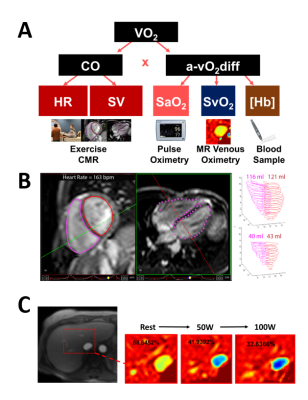 |
Screen Number: 27
0349. Imaging
of Whole Body Oxygen Consumption and its Fick Determinants
During Exercise: Real-Time Exercise CMR and Venous Oximetry
S. Foulkes, R. Skow, J. Grenier, C. Tomczak, D. Perkins, H.
Mugele, M. Nelson, A. La Gerche, J. Lawley, M. Haykowsky, R.
Thompson
University of Alberta, Edmonton, Canada
Impact: An MRI approach that combines real-time CMR with
magnetic-susceptometry-based measures of SvO2 is feasible
and allows for accurate quantification of peak VO2 and
its Fick determinants (CO x a-vO2diff)
without the need for invasive catheters.
|
| 16:04 |
 |
Screen Number: 28
0350. Immediate
cardiovascular response to Fontan fenestration test occlusion:
insights from interventional cardiac MR and biomechanical
modeling
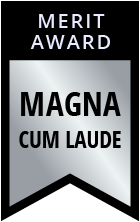
M. Gusseva, H. Dahshi, S. Reddy, Y. Arar, A. Divekar, T.
Hussain
UT Southwestern Medical Center , Dallas, United States
Impact: In patients with Fontan circulation the
relationship between fluid dynamic efficiency in total
cavopulmonary connection and myocardial mechanics can be
investigated by interventional CMR and biomechanical
modeling. The proposed framework allows to investigate
immediate cardiovascular response to fenestration test
occlusion.
|
| 16:06 |
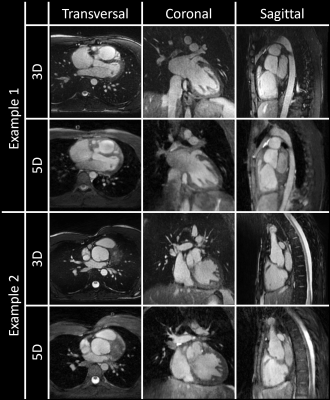 |
Screen Number: 29
0351. Free-running
Fast-Interrupted Steady-State 5D whole-heart MRI of congenital
heart disease patients without the use of contrast agents
C. Roy, T. Rutz, J. Schwitter, J. Yerly, M. Stuber
Lausanne University Hospital (CHUV) and University of Lausanne (UNIL), Lausanne, Switzerland
Impact: Free-running Fast-Interrupted Steady-State 5D
whole-heart MRI enables the evaluation of the cardiac
anatomy in patients with congenital heart disease within a
fixed six-minute scan time and without contrast agents.
|
| 16:08 |
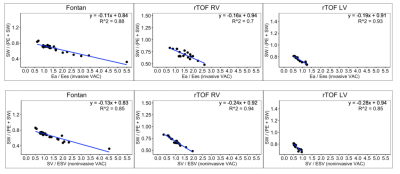 |
Screen Number: 30
0352. Cardiac
MRI derived ventricular-arterial coupling ratio predicts
myocardial energetics in patients with congenital heart disease
N. Banga, T. Hussain, M. Gusseva
UT Southwestern Medical Center, Dallas, United States
Impact:
Ventricular arterial coupling (arterial (Ea)/ventricular (Ees) elastance) was a strong predictor of ventricular efficiency ratio (SW/SW+PE). CMR-derived VAC (ESV/SV) was equivalent to Ea/Es suggesting the potential of ESV/SV to be an important indicator of cardiovascular energetics. |
| 16:10 |
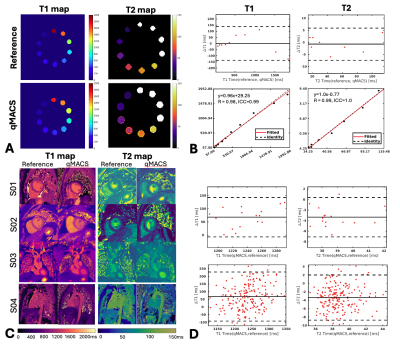 |
Screen Number: 31
0353. Toward
a 6-minute quantitative multi-dimensional assessment of
cardiovascular system (qMACS)

Q. Kong, Y. Chen, J. Chen, J. Xiao, S. X. Cui, A. G.
Christodoulou, D. Li, J. C. Wood, Z. Fan
University of Southern California, Los Angeles, United States
Impact: qMACS is a time-efficient and patient-friendly
technique for simultaneous quantitative and qualitative
imaging of the whole cardioaortic system and may be used as
a gatekeeper approach to the diagnosis of a variety of
cardiovascular diseases.
|
| 16:12 |
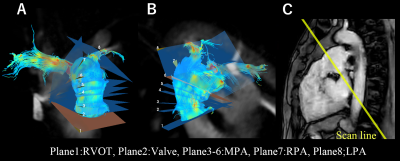 |
Screen Number: 32
0354. Evaluation
of Regurgitation Fraction in Repaired Tetralogy of Fallot Using
2D-PC and 4D Flow MRI

H. MORI, M. NAGAO, M. Jinzaki, H. Hamano
Keio University School of Medicine, Tokyo, Japan
Impact: This study enhances the reliability of 4D Flow
MRI for RF measurement in TOF patients by comparing it to
2D-PC. 4D Flow assessment helps explore optimal measurement
sites, leading to more accurate evaluations and better
management of pulmonary regurgitation.
|
| 16:14 |
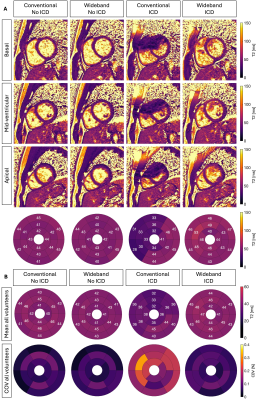 |
Screen Number: 33
0355. Wideband
myocardial T2 mapping in patients with implantable cardiac
devices at 1.5T
P. Gut, D. Kim, H. Cochet, F. Sacher, P. Jaïs, M. Stuber, A.
Bustin
University Hospital of Lausanne, Lausanne, Switzerland
Impact:
The proposed wideband T2 mapping sequence represents a significant advancement in myocardial T2 mapping for patients with implantable cardiac devices, offering a reliable method for assessing myocardial inflammation and edema, where conventional methods fail. |
| 16:16 |
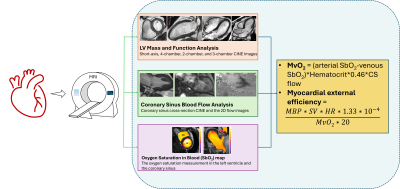 |
Screen Number: 34
0356. Quantification
of myocardial oxygen consumption and myocardial external
efficiency using cardiac MRI: a pilot study in post-MI HFrEF
patients
L-T Huang, H. Zhang, R. Zhang, C-C Yang, H. Ho, A. Malagi,
Y. Huang, X. Li, J. Zepeda, G. Yoosefian, X. Zhang, J. Wei,
A. C. Kwan, M. D. Nelson, X. Bi, A. Christodoulou, N. B.
Merz, D. Li, R. Dharmakumar, G. Wang, H-j Yang
National Cheng Kung University Hospital, Tinan, Taiwan
Impact: The non-invasive and radiation-free GRE
T2-weighted inversion recovery CMR technique can evaluate
myocardial oxidative embolism and assess myocardial
performance efficiency, which is lower in post-MI HF
patients.
|
| 16:18 |
 |
Screen Number: 35
0357. 3D
joint bright blood and black blood imaging technique for
multi-parametric imaging of carotid artery: feasibility and
clinical application
N. Xu, H. Qiao, S. Chen, Z. Xu, Z. Ning, S. Yu, X. Zhao
Center for Biomedical Imaging Research, School of biomedical engineering, Tsinghua Univeristy, Beijing, China
Impact:
This work provides a potential qualitative and quantitative carotid artery imaging technique from multi-contrast imaging to multi-paramertic imaging, abundant information can be derived from this set of images.
|
| 16:20 |
 |
Screen Number: 36
0358. Reduced
CMR right/left ventricular blood pool T2 ratio indicates
cognitive impairment in heart failure
Y. Cui, C. Zheng, S. Gu, J. Si, K. Xiao, Y. Hu, Y. Yang, J.
Li, J. Lu
Xuanwu Hospital, Capital Medical University, Beijing, China
Impact: Right/left ventricular blood pool T2 ratio is a
complementary index of venous and arterial blood oxygenation
difference based on routine T2 mapping and may serve as a
simple and noninvasive indicator for cognitive impairment in
patients with heart failure.
|
| 16:22 |
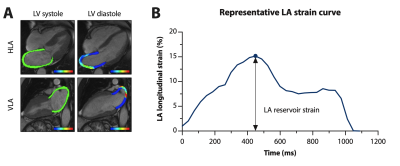 |
Screen Number: 37
0359. Prognostic
Utility of Left Atrial Strain to Predict Atrial Fibrillation in
Hypertrophic Cardiomyopathy: Insights from the NHLBI HCM
Registry
O. Agnel, N. Beyhoff, M. Fenski, C. Botrous, Y. J. G. Tan,
R. Smillie, H. Watkins, W. Weintraub, R. Kwong, M.
Jerosch-Herold, C. Ho, M. Desai, P. Desvigne-Nickens, D-Y
Kim, S. Dolman, J. Brekke, J. DiMarco, P. Kolm, C. Kramer,
S. Neubauer, B. Raman
University of Oxford, Oxford, United Kingdom
Impact: Our findings suggest that left atrial (LA)
strain is an independent predictor of atrial fibrillation in
patients with hypertrophic cardiomyopathy. Assessment of LA
strain may thus improve prognostic risk assessment and
clinical management in the future.
|
| 16:24 |
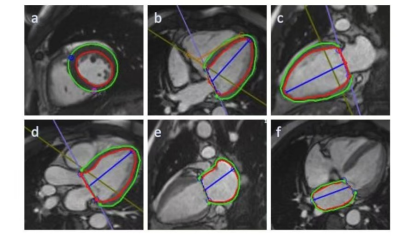 |
Screen Number: 38
0360. Predictive
potential of left ventricular and left atrial myocardial strain
when combined with the GRACE score in NSTEMI patients
Y. Zhao, Y. Shi, J. Lian, P. Liu
The First Affiliated Hospital of Harbin Medical University, Harbin, China
Impact: The integration of myocardial strain assessment
with the GRACE score enhances the prediction of patient
outcomes, thereby providing clinicians with more effective
guidance in patient management
|
| 16:26 |
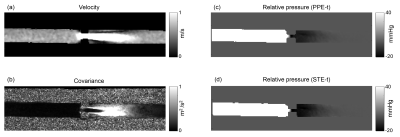 |
Screen Number: 39
0361. Non-invasive
mapping of turbulence on relative pressure fields – extending
full-field estimators using Reynolds stress imaging
D. Marlevi, T. Ebbers, D. Nordsletten
Karolinska Institutet, Stockholm, Sweden
Impact: Using a theoretical Reynolds decomposition of
velocity and pressure and leveraging Reynolds stress imaging
through ICOSA6 4D Flow MRI, we show how spatial mapping of
turbulent relative pressure fields is achievable, opening
for detailed non-invasive assessment of turbulent
hemodynamic behavior.
|
| 16:28 |
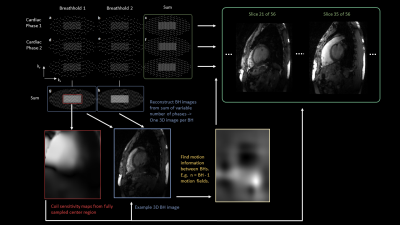 |
Screen Number: 40
0362. Inline
Implementation of a Multi-Breathhold 3D Cine Framework: A
Feasibility Study
K. Kunze, I. Watson, O. Goldman, A. Chiribiri, R. Neji
Siemens Healthcare Limited, Camberley, United Kingdom
Impact: We propose a 3D cine CMR framework acquiring
data efficiently over 2-3 of breathholds and a
reconstruction that can handle potential inter-breathhold
motion. Images can be retrospectively reformatted into
desired slice positions minimising operator input at scan
time.
|
| 16:30 |
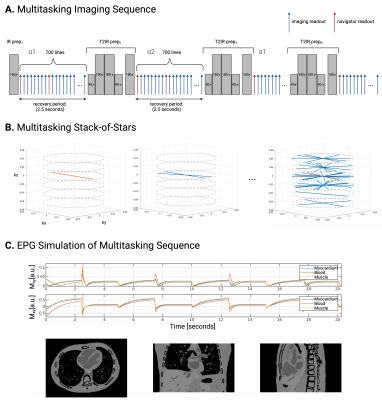 |
Screen Number: 41
0363. Accelerated
Joint T1-T2 Fitting in Cardiac Magnetic Resonance Multitasking
Using Extended Phase Graph Dictionaries
K. Eyre, A. Christodoulou, X. Mao, T. Cao, Z. Chen, P.
Calarnou, C. Roy, M. Benovoy, M. Friedrich, M. Chetrit, J.
Yerly
McGill University Health Centre, Montreal, Canada
Impact: The significant reduction of T1-T2 fitting times
through EPG dictionary matching improves the post-processing
workflow of 3D Multitasking, potentially bringing the
technology closer to clinical workflow integration.
|
| 16:32 |
 |
Screen Number: 42
0364. Motion-robust
approach for 4D cardiac MRI using 2D real-time acquisitions and
slice-to-volume reconstruction (SVR)
Y. Tian, A. Joshi, K. Lee, P. Garg, J. Zaman, J. Detterich,
J. Wood, K. Nayak
University of Southern California , Los Angeles , United States
Impact: This approach enables 1 mm3 isotropic
4D cardiac cine with zero patient corporation, within an
averaged 8:47±1:02 minutes acquisition. This approach may be
beneficial in patients that are non-cooperative, children,
and those with irregular breathing and/or arrhythmia.
|
| 16:34 |
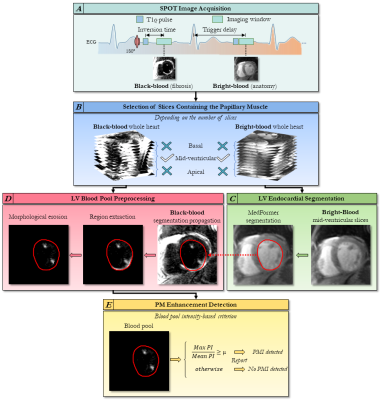 |
Screen Number: 43
0365. Improved
and automated detection of papillary muscle infarction using
joint bright- and black-blood LGE MRI
T. Richard, V. de Villedon de Naide, V. Nogues, T. Génisson,
K. Narceau, P. Gut, M. Villegas-Martinez, K. He, R. Klaar,
B. Durand, T. Boullé, S. Sridi, J-D Maes, K. Vlachos, G.
Caluori, P. Jaïs, M. Stuber, H. Cochet, A. Bustin
IHU LIRYC, Electrophysiology and Heart Modeling Institute, Université de Bordeaux, INSERM, Centre de Recherche Cardio-Thoracique de Bordeaux, U1045, Bordeaux, France
Impact: As PMI is a key information for the prognosis of
patients suffering from acute coronary syndrome such as
myocardial infarction, improving the precision of its
diagnosis using SPOT is crucial for better patient care.
|
| 16:36 |
 |
Screen Number: 44
0366. A
nitric oxide-targeted T1 contrast agent for in vivo molecular MR
imaging of inflammation in heart failure
A. Hong, H-L Cheng
University of Toronto, Toronto, Canada
Impact:
This new NO-activatable T1 contrast agent can be used to study the dynamics of NO in pathological processes. It holds the potential to diagnose inflammatory disease early, characterize stages of inflammation, and ultimately guide the design of anti-inflammation therapeutics. |
| 16:38 |
 |
Screen Number: 45
0367. 0.55T
characterization of patients with cardiomyopathy
W. P. Bandettini, C. Mancini, R. Ramasawmy, S. Kumar, A.
Campbell-Washburn
National Heart, Lung, and Blood Institute, National Institutes of Health, Bethesda, United States
Impact: Cardiomyopathies comprise >20% of clinical
referrals to CMR, and phenotyping uses multiple pulse
sequences pre- and post-contrast. This patient population is
high priority for assessment by 0.55T. Our results indicate
accurate clinical interpretation of 0.55T CMR for patients
with cardiomyopathies.
|
| 16:40 |
 |
Screen Number: 46
0368. 3D
Whole-Ventricle Cardiac Phase-Resolved Dynamic
Ferumoxytol-Enhanced Imaging with MR Multitasking

X. Chen, K-L Nguyen, A. Christodoulou
Department of Radiological Sciences, David Geffen School of Medicine at UCLA, Los Angeles, United States
Impact: We proposed a dynamic ferumoxytol-enhanced
cardiac MRI technique which has 3D whole-ventricle coverage
and is non-ECG gated and free-breathing. It may provide the
groundwork for a comprehensive assessment of myocardial
blood flow and blood volume in a single acquisition.
|
| 16:42 |
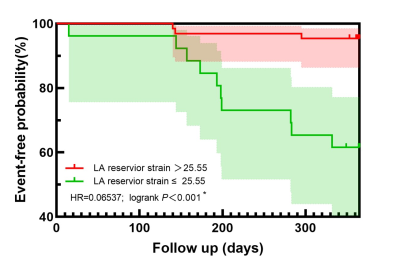 |
Screen Number: 47
0369. Prognostic
Value of Left Atrial Strain Analysis by using CMR Feature
Tracking Technology for patients with Acute Myocarditis
X. Gu, Y. Chen, C. Tang, C. Tang, G. Wang, Y. Yunling Li, Y.
Zhao, J. Lian, S. Liu, B. Yu
The Second Affiliated Hospital of Harbin Medical University, haerbin, China
Impact: The reduction in LA reservoir strain has been
found the independent predictive value in predicting
clinical outcomes of patients with acute myocarditis.
|
| 16:44 |
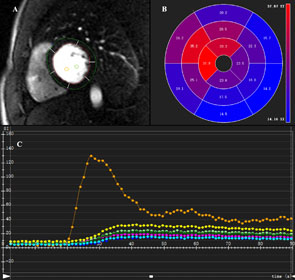 |
Screen Number: 48
0370. Characterizing
Exercise-Induced Changes in Myocardial Microcirculation Using
CMR First-Pass Perfusion Imaging
C. Li, J. Chen, X. Zhang
The Affiliated Hospital, Southwest Medical University, Luzhou, China
Impact: The established prediction model that combines
first-pass perfusion parameters demonstrates strong
predictive capabilities and may be beneficial for screening
athletes with CR and/or MF.
|
| 16:46 |
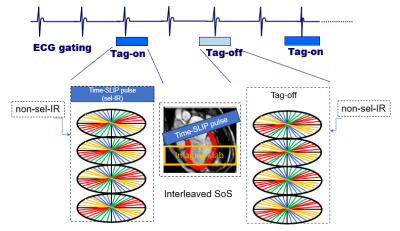 |
Screen Number: 49
0371. Motion-Robust
MR Coronary Angiography and Interleaved Stack-of-Stars (iSoS)
with ASL Myocardium Perfusion
M. Miyazaki, V. Malis, D. Vucevic, Y. Kuwatsuru, H. Ota, Y.
Tada, P. Kim
University of California, San Diego, La Jolla, United States
Impact: The motion robust MRCA achieves a sub-5-minute
scan time for all subjects. Interleaved SoS (iSoS) inherits
motion robustness by oversampling the kx-ky center
of k-space without respiratory compensation. Combined with
MRCA, iSoS perfusion provides valuable insights into
myocardial blood supply.
|
| 16:48 |
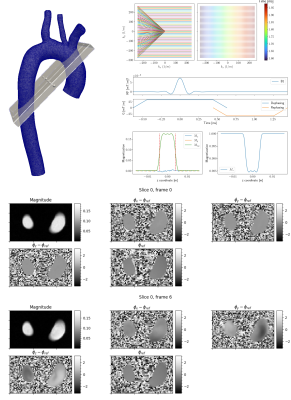 |
Screen Number: 50
0372. FEelMRI:
a simple and extensible Python library for the generation of
synthetic MR images from finite elements simulations
H. Mella, S. Uribe, J. Sotelo
Pontificia Universidad Católica de Valparaíso, Valparaíso, Chile
Impact: FEelMRI enables rapid and flexible generation of
synthetic MR images from FE models, significantly reducing
computational costs and expanding possibilities in MRI
research. This novel tool facilitates the study of MRI under
complex physiological conditions, enhancing research
capabilities and applications.
|
The International Society for Magnetic Resonance in Medicine is accredited by the Accreditation Council for Continuing Medical Education to provide continuing medical education for physicians.